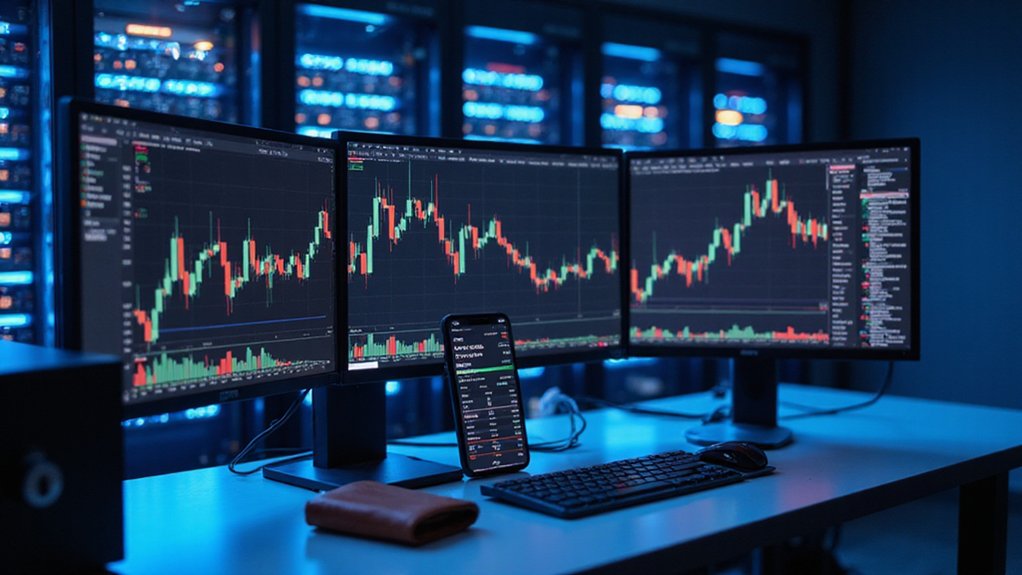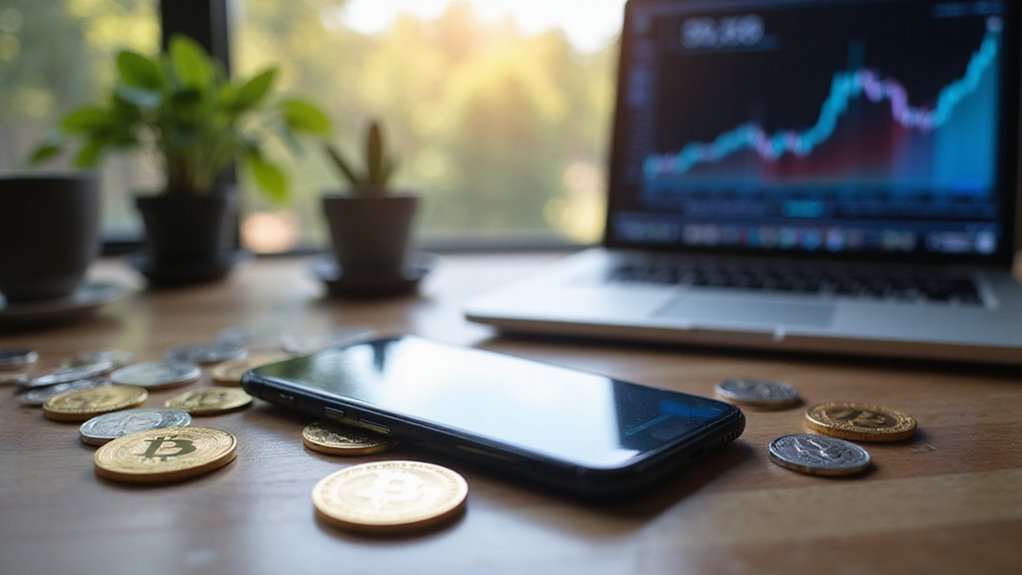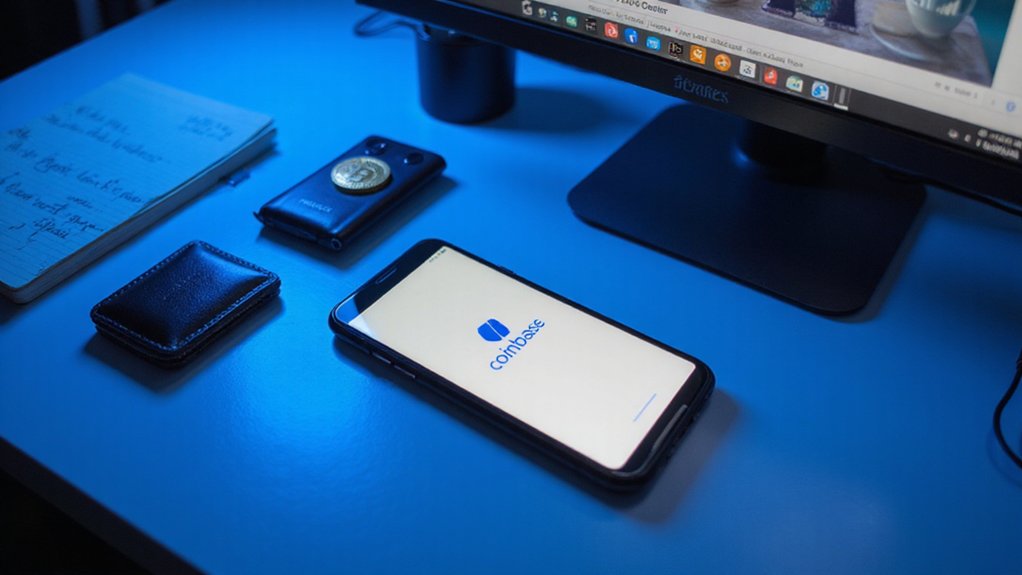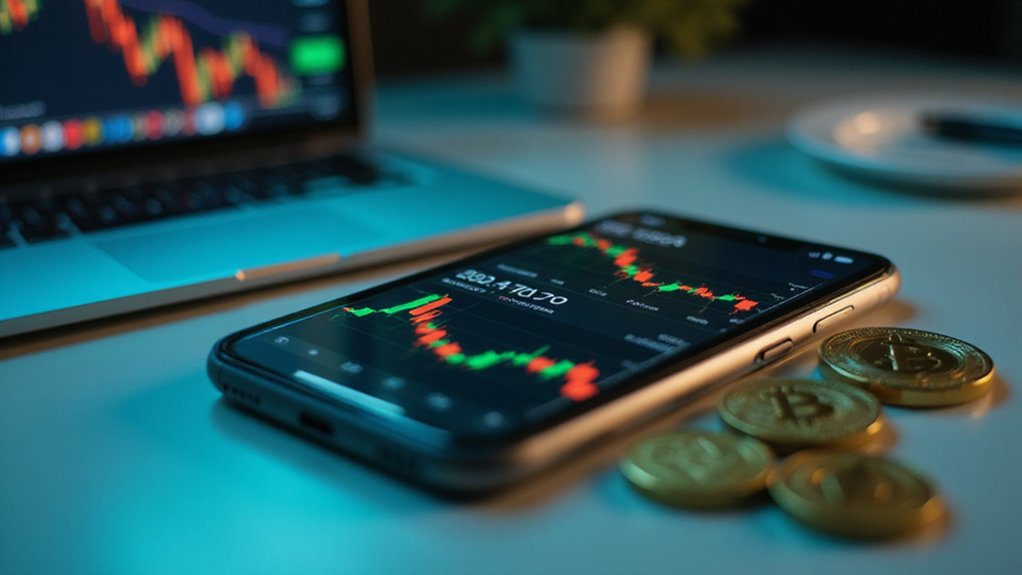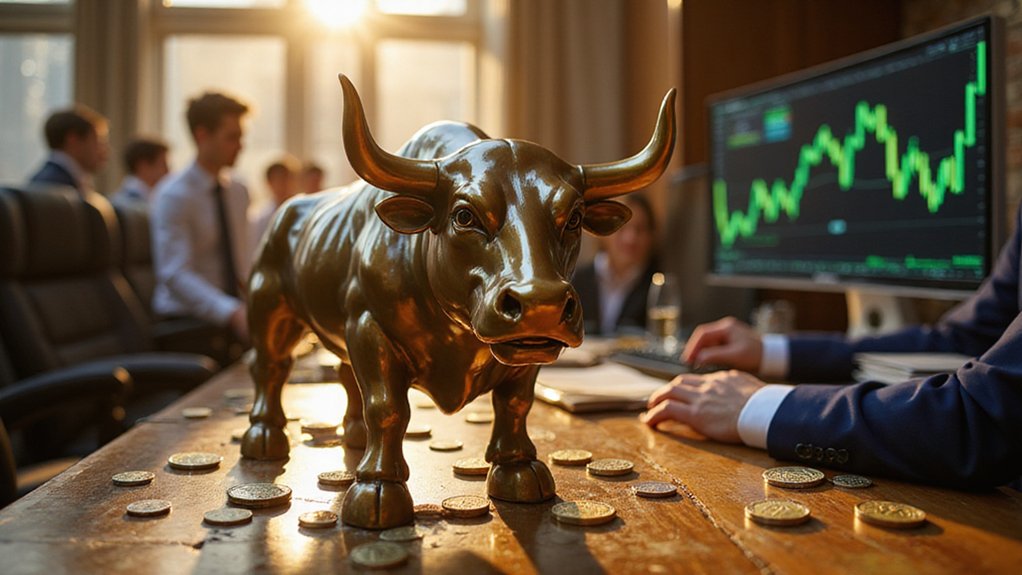The leading crypto exchanges for safe trading include Binance (market dominant despite regulatory challenges), Coinbase (newbie-friendly with ironclad security), Crypto.com (military-grade encryption), Gemini (regulatory darling), Kraken (security-obsessed), OKX, Huobi (Asian powerhouses), Bybit, Bitfinex (specialized platforms), and—conspicuously absent—FTX (whose spectacular implosion proved size doesn’t guarantee safety). Each balances convenience with robust security protocols; discerning traders employ cold storage, multi-factor authentication, and vigilant phishing awareness. The exchange landscape continues evolving, with security measures determining which platforms ultimately survive the crypto Darwinism.
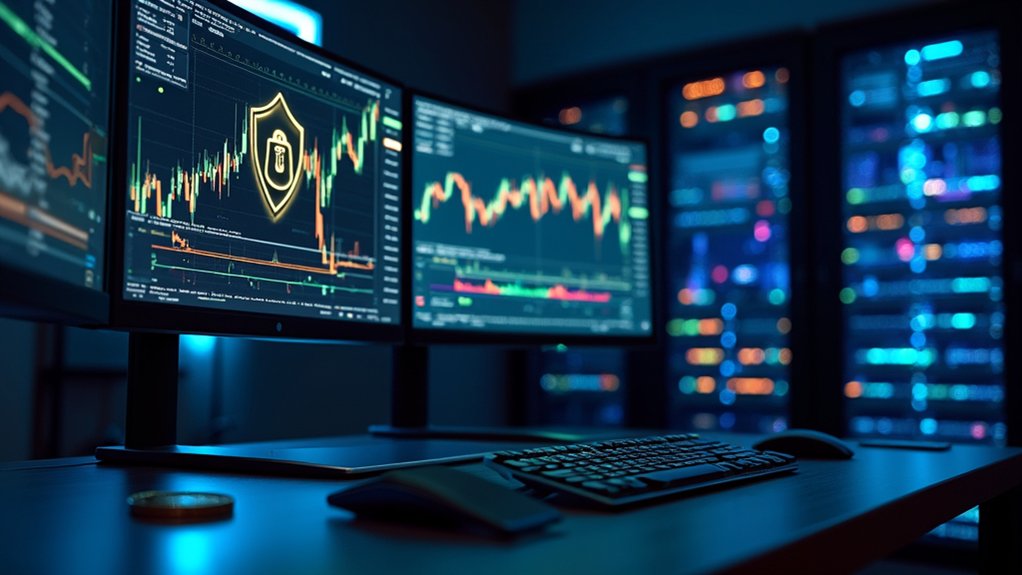
The labyrinthine world of cryptocurrency trading—with its volatile price swings and technical complexities—demands a secure foundation from which investors can operate.
As digital assets continue their inexorable march toward mainstream adoption, the exchanges that facilitate these transactions have evolved from rudimentary platforms into sophisticated financial institutions, complete with security protocols that would impress even the most paranoid of cybersecurity experts.
Leading the pack is Binance, whose dominance in trading volume is matched only by its commitment to security measures including cold storage and rigorous KYC procedures.
Unmatched market share meets fortress-like security protocols, placing Binance at the industry’s vanguard
Coinbase follows closely behind, having established itself as the de facto gateway for neophyte investors while maintaining an impeccable security record (notwithstanding occasional service outages during peak volatility periods—timing that some might consider suspiciously convenient).
Crypto.com has emerged as a formidable contender, employing military-grade encryption and holding the distinction of being one of the safest exchanges according to independent security audits.
Gemini, the Winklevoss twins’ brainchild, offers a compelling combination of regulatory compliance and user-friendly interface, while Kraken provides advanced trading features without compromising on security.
OKX and Huobi cater primarily to the Asian market, each boasting robust security protocols despite operating in somewhat murky regulatory waters.
Bybit and Bitfinex round out the list, differentiating themselves through specialized trading options and liquidity pools, respectively.
The collapse of FTX—once considered unassailable—serves as a sobering reminder that size doesn’t guarantee security.
Prudent traders implement additional safeguards: enabling multi-factor authentication, utilizing cold storage for long-term holdings, and maintaining vigilance against increasingly sophisticated phishing attempts.
After all, the exchange is merely the venue; the ultimate responsibility for security lies with the individual.
Top exchanges perform regular security checks through vulnerability scans and comprehensive audits to identify and address potential threats before they can be exploited.
When seeking support from platforms like Coinbase, users should always use official channels to avoid potential scams and never share sensitive information like passwords or verification codes with anyone claiming to be customer support.
The most secure platforms balance technological safeguards with regulatory compliance, regularly conducting security audits while maintaining thorough incident response plans.
These exchanges often utilize blockchain technology to enhance transaction security and provide an immutable record of all activities on their platforms.
For investors traversing this digital frontier, selecting an exchange represents a calculated risk assessment—weighing convenience against protection in an ecosystem where a single vulnerability can lead to irreversible consequences.
Frequently Asked Questions
How Do Exchange Insurance Policies Protect My Crypto Assets?
Exchange insurance policies provide a financial safety net for digital assets by covering specific risks like cyberattacks, theft, and operational disruptions.
These policies compensate exchanges (and sometimes users directly) after covered incidents, helping maintain platform stability while promoting user confidence.
The protection, however, comes with defined coverage limits and exclusionary clauses—a fact often overlooked by traders who mistake insurance presence for complete protection.
Policies typically require exchanges to implement robust security measures as prerequisites for coverage.
What Security Certifications Should I Look for in Crypto Exchanges?
Traders should prioritize exchanges with Cryptocurrency Security Standard (CCSS) certification, particularly those achieving Level II or III status—which demonstrates increasingly robust security protocols beyond basic hygiene practices.
SOC 2 compliance verifies organizational controls, while ISO/IEC 27001 certification validates information security management systems.
PCI DSS guarantees payment card protection, critical for fiat on-ramps.
The truly discerning investor might also look for bug bounty programs—a surprisingly transparent acknowledgment that security is perpetually unfinished business.
Can I Trade Anonymously on Major Exchanges?
Trading anonymously on major cryptocurrency exchanges is virtually impossible due to regulatory requirements.
Established platforms like Coinbase, Binance, and Kraken enforce KYC procedures—an inevitability in today’s compliance-obsessed financial landscape.
While privacy coins such as Zcash and Monero offer theoretical anonymity benefits, their mere presence on regulated exchanges negates complete privacy.
Traders seeking anonymity might consider decentralized platforms like Bisq or Bitget (for smaller amounts), though such choices invariably sacrifice liquidity and, potentially, security assurances.
How Quickly Can I Withdraw Funds During Market Crashes?
Withdrawal speeds during market crashes vary dramatically across exchanges.
While top platforms like Binance and BYDFi typically maintain functionality, network congestion can extend typical processing times from minutes to hours—or even days.
Prudent traders establish withdrawal pathways before volatility strikes (pre-crash preparation being worth its weight in digital gold) and diversify across multiple exchanges.
The irony remains that precisely when one needs capital mobility most, blockchain networks face their greatest throughput limitations.
Which Exchanges Offer the Lowest Fees for High-Volume Traders?
For high-volume traders seeking fee efficiency, Kraken Exchange leads the pack with maker fees as low as 0.00% and its Pro platform offering particularly competitive rates.
Gemini Active Trader provides the lowest fees specifically for Bitcoin transactions, while Binance and Coinbase Pro maintain sub-0.10% maker fees with volume-based discounts.
The discerning trader might note that fee structures typically follow tiered models—rewarding liquidity providers through maker-taker differentials that become increasingly advantageous as monthly volumes climb.
